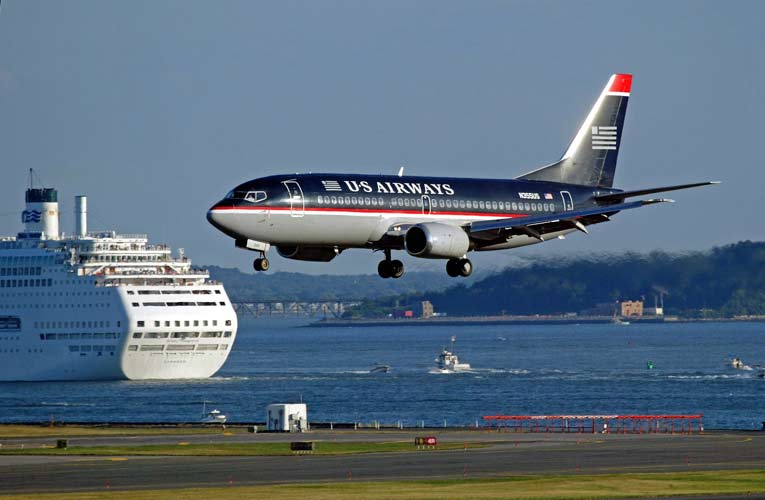
According to Top US Airlines, implementation of 5G services around the airport should be prohibited as it may interfere with sensitive airplane sensors such as altimeters.
Although 5G is being deployed in over 40 countries, only US airlines have raised concerns. Most airlines ask passengers to switch off their phones during take-off and landing because of issues related to interference with avionics. However, this worry has only existed on paper so far because mobile carriers and airlines use distinct frequency bands and there was no real risk of interference. But in the US, there could be higher chance of interference as both telecom companies and airlines use the C-band. For years, telecom companies and the aviation sector have been debating how the changeover should take place in the United States, but no agreement has been reached. Over 600 flights to the US were cancelled by the US aviation authorities, claiming air safety concerns related to 5G.
The implementation of 5G services surrounding the airport should be prohibited, according to top US airlines, because it may interfere with sensitive airplane sensors such as altimeters and considerably impede low-visibility operations. Frequencies within the C-band being used for the 5G services are near airwaves used for aviation communication. Following this, several airlines around the world including Air India have curtailed flights to the US. As a temporary measure, AT&T and Verizon voluntarily limited 5G deployment near certain airports.
None of the airlines have raised any issues with the proposed spectrum auction plan. However, the Federation of Indian Pilots has written to the Civil Aviation Minister, urging the Directorate General of Civil Aviation and the TRAI to guarantee that 5G services in the C Band would be implemented safely. The US administration is trying to reach an agreement between airlines, telecom companies and FCC on resolving this dispute over the rollout of 5G service. Meanwhile, the airlines may resume normal operations shortly as the telecom operators have voluntarily decided to stop 5G deployment near airports which is just a temporary solution to fix concerns of the aviation industry.
India is yet to hold 5G spectrum which is expected to be launched only by next year. Similar debates erupted in India when 3G and 4G services were launched. At that time, the military forces and the space agency both claimed rights to specific frequency bands. Before a service is launched, the TRAI and the Department of Telecom's Wireless Planning and Coordination wing usually work out the differences. As a result, it's astonishing that the United States' Federal Communications Commission (FCC) has been unable to resolve the dispute between airlines and telcos.
According to Top US Airlines, implementation of 5G services around the airport should be prohibited as it may interfere with sensitive airplane sensors such as altimeters.
Although 5G is being deployed in over 40 countries, only US airlines have raised concerns. Most airlines ask passengers to switch off their phones during take-off and landing because of issues related to interference with avionics. However, this worry has only existed on paper so far because mobile carriers and airlines use distinct frequency bands and there was no real risk of interference. But in the US, there could be higher chance of interference as both telecom companies and airlines use the C-band. For years, telecom companies and the aviation sector have been debating how the changeover should take place in the United States, but no agreement has been reached. Over 600 flights to the US were cancelled by the US aviation authorities, claiming air safety concerns related to 5G.
The implementation of 5G services surrounding the airport should be prohibited, according to top US airlines, because it may interfere with sensitive airplane sensors such as altimeters and considerably impede low-visibility operations. Frequencies within the C-band being used for the 5G services are near airwaves used for aviation communication. Following this, several airlines around the world including Air India have curtailed flights to the US. As a temporary measure, AT&T and Verizon voluntarily limited 5G deployment near certain airports.
None of the airlines have raised any issues with the proposed spectrum auction plan. However, the Federation of Indian Pilots has written to the Civil Aviation Minister, urging the Directorate General of Civil Aviation and the TRAI to guarantee that 5G services in the C Band would be implemented safely. The US administration is trying to reach an agreement between airlines, telecom companies and FCC on resolving this dispute over the rollout of 5G service. Meanwhile, the airlines may resume normal operations shortly as the telecom operators have voluntarily decided to stop 5G deployment near airports which is just a temporary solution to fix concerns of the aviation industry.
India is yet to hold 5G spectrum which is expected to be launched only by next year. Similar debates erupted in India when 3G and 4G services were launched. At that time, the military forces and the space agency both claimed rights to specific frequency bands. Before a service is launched, the TRAI and the Department of Telecom's Wireless Planning and Coordination wing usually work out the differences. As a result, it's astonishing that the United States' Federal Communications Commission (FCC) has been unable to resolve the dispute between airlines and telcos.

